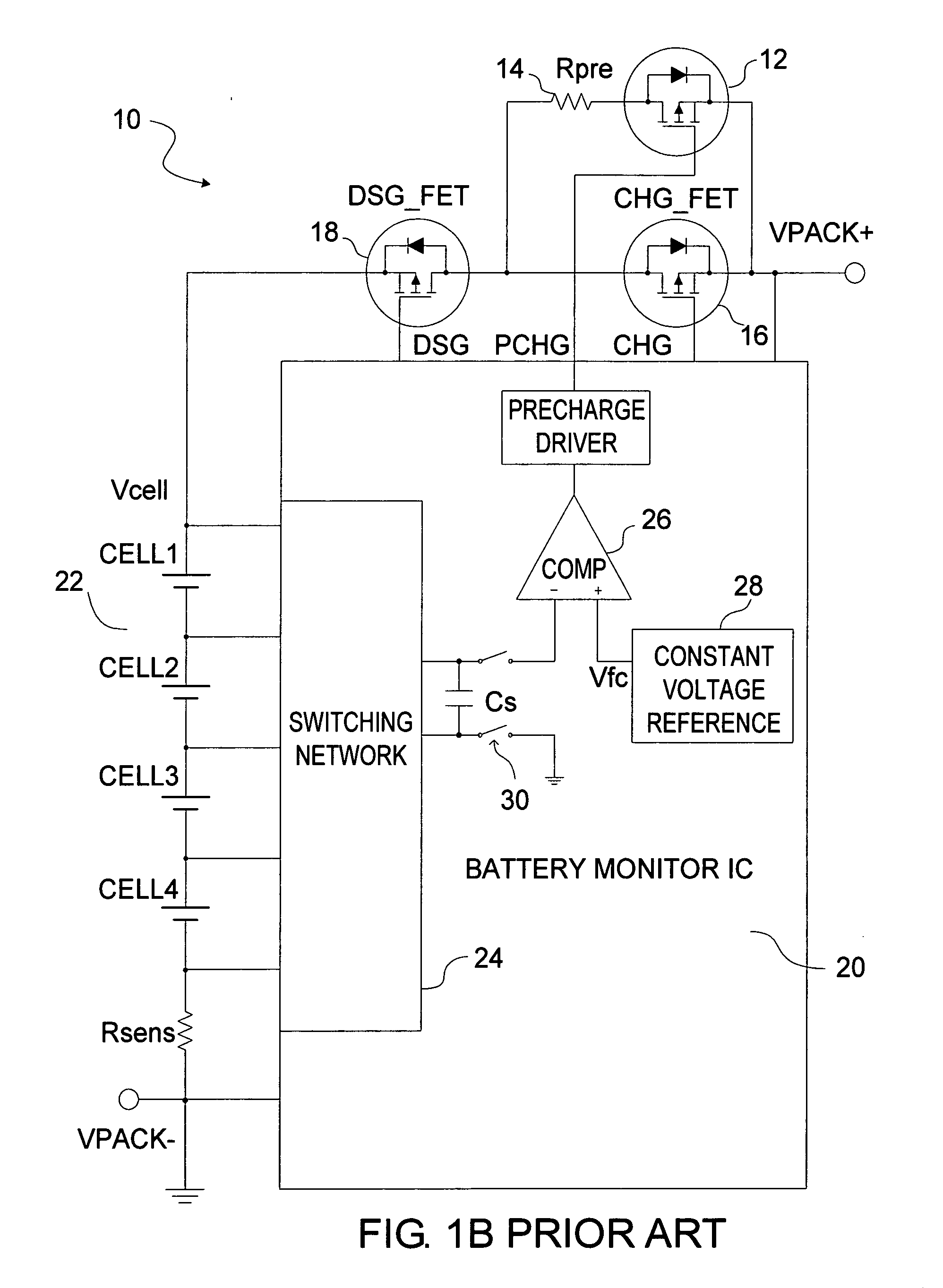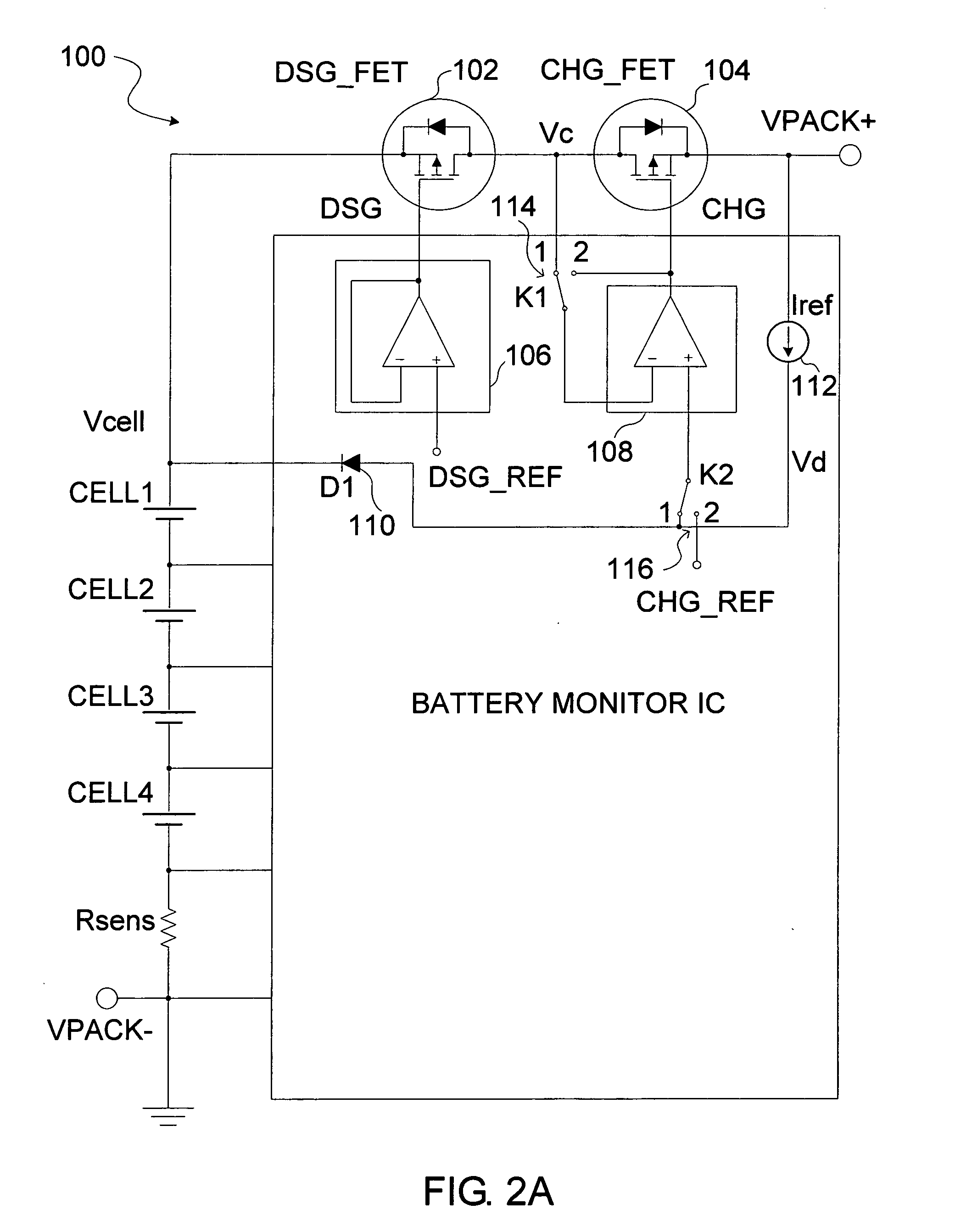Circuits capable of trickle precharge and/or trickle discharge
a charging circuit and circuit technology, applied in safety/protection circuits, secondary cells servicing/maintenance, instruments, etc., can solve the problems of large pre-charging current, large pre-charging current, and high cost of increasing pcb area
- Summary
- Abstract
- Description
- Claims
- Application Information
AI Technical Summary
Benefits of technology
Problems solved by technology
Method used
Image
Examples
Embodiment Construction
[0020]FIG. 2A depicts one exemplary trickle precharge topology 100 according to the present invention. In this embodiment, two FETs (charge FET CHG_FET and discharge FET DSG_FET) may be used. In this embodiment, the charge FET 104 and discharge FET 102 may be placed back-to-back in series in the manner depicted and as understood in the art. In a trickle precharge mode, the discharge FET 102 may be off (non-conducting), but current may still pass through its body diode to the battery cells if charge FET(CHG_FET) is on (conducting). If CHG_FET is off, then no current flows from or into the battery cells.
[0021] Besides two MOSFETs, this topology 100 may also include a reference diode D11110, discharge driver 106, charger driver 108, and reference current source Iref 112. The charge driver 108 and discharge driver 106 may each comprise respective comparators. In a regular charge mode, switches K1 and K2 (114 and 116) are set to position 2. In this position, the charge driving voltage C...
PUM
 Login to View More
Login to View More Abstract
Description
Claims
Application Information
 Login to View More
Login to View More - R&D
- Intellectual Property
- Life Sciences
- Materials
- Tech Scout
- Unparalleled Data Quality
- Higher Quality Content
- 60% Fewer Hallucinations
Browse by: Latest US Patents, China's latest patents, Technical Efficacy Thesaurus, Application Domain, Technology Topic, Popular Technical Reports.
© 2025 PatSnap. All rights reserved.Legal|Privacy policy|Modern Slavery Act Transparency Statement|Sitemap|About US| Contact US: help@patsnap.com



